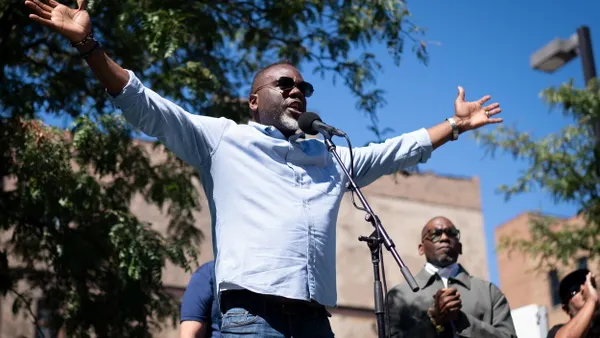Dive Brief:
- Verizon will partner with living lab Urbanova to help Spokane, WA deploy smart cities technology in areas like traffic, grid resiliency and air quality monitoring, the company and city announced last week.
- Verizon and Urbanova will initially target the city’s University District, looking at sensors and coordinated infrastructure that can enhance public safety, congestion and parking. The sensors will also offer information on air quality, a priority for the city.
- "It’s not just about smart technology, connectivity or applications; it starts with a focus on the people," Mrinalini Ingram, Vice President of Smart Communities at Verizon, said in a statement. "We’re looking forward to working hand in hand to understand the needs of the community and together, develop solutions that bolster the economy and improve the lives of the people that live and work in the area.”
Dive Insight:
Urbanova — a collaboration of Avista, Itron, McKinstry, University District, Washington State University and the City of Spokane — seeks to test smart city tools in real-life scenarios. Its smart streetlights project, for example, installed connected traffic infrastructure that not only coordinates traffic signals, but automatically dims lights when traffic is low in order to save energy. The lights also capture data about air quality, noise and temperature, to help give city officials more information about the environment. The city’s University District acts as a living lab, with tools expanded elsewhere in the city if successful.
This summer, Urbanova announced that it would partner with analytics firm Gallup on interviews and polling to help identify projects that would make the biggest difference for the public.
Verizon has deployed smart communities tools in more than 50 cities around the country, including technology targeting traffic management, electric grid improvements and app-based auto rentals. It continues a trend of cities partnering directly with companies to get cutting-edge technology, although the Spokane partnership emphasizes that city officials and academics will drive the decision-making.
In a press conference, Ingram said it was "important that we fit the technology to the need and not the other way around," according to the Spokane Spokesman-Review. That can ensure that the new tools actually meet the needs of people who live and work there, rather than just being dropped on the city.











